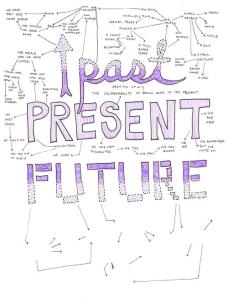
The late author David Foster Wallace began his commencement address to the graduates of Kenyon College in 2005 with:
There are these two young fish swimming along and they happen to meet an older fish swimming the other way, who nods at them and says “Morning, boys. How’s the water?” And the two young fish swim on for a bit, and then eventually one of them looks over at the other and goes, “What the hell is water?”
As Wallace explained, the point of the fish story is merely that the most obvious, important realities are often the ones that are hardest to see and talk about.
We celebrated our 49th National Day last Saturday 9 August 2014. It also means we are now into our 50th year of independent statehood, our year of Jubilee. I will discuss the significance of Jubilee in some future blog. But in this blog I would simply like to draw our minds to what is the important reality about Singapore that is possibly, or even probably, hard “to see and talk about”.
What is the reason for Singapore’s economic success all these years, when Singapore had to strike its own path of success and survival after giving up the idea of needing to have an economic hinterland next door, which was the reason for Singapore’s desire to merge with the Malayan peninsula to its north and thus had been part of Malaysia?
In terms of strategies and schemes, Singapore had decided to “leapfrog the region” and reach out to the whole world as its “hinterland”, the source of investment capital, management capability, technology, and, most of all, markets. There was massive investment in education and training, a major thrust in home ownership through the work of the Housing and Development Board and the Central Provident Fund scheme to create stakes for everyone, and a global push for investments through the Economic Development Board. But this focus on schemes and policies, exactly, could cause us to miss the critical point.
Why should companies invest billions of dollars in Singapore knowing they would need tens of years to recover their investments? They have done so because they have found the people and government of Singapore to be trustworthy. We could be relied on to work hard and to deliver on our promises, even if we faced unexpected difficulties and many obstacles along the way. Singapore’s perspective was that of long-term business and personal relationships, the type of relationship which could only survive where trust and credibility are never in question.
Singapore is an artificial construct: We are the result of human effort and invention. We have a reputation for honouring our word as manifested in integrity, incorruptibility, hard work, imagination in solving problems, and future-orientedness. It is easy to forget that Singapore is the product of human ingenuity and trustworthiness, which can be easily lost if not understood and sustained by Singaporeans.
A Harvard University professor visiting Singapore for the first time remarked he found honour even in the simplest behaviours among Singaporeans, as he saw in the taxi driver who arrived to pick him up exactly at the time promised. To him this was a demonstration of the taxi driver honouring his word.
Singaporeans run the danger of saying, as the fish at the beginning of this story, “What the hell is water?” without recognizing that “Singapore water” is honour and trustworthiness built up over many years through consistent behaviour, predictable policy, social stability, and national unity.
These attributes have certainly made Singapore unique among the many developing countries of the world…the important question is: Are we able to sustain this uniqueness to not only survive, but thrive?










